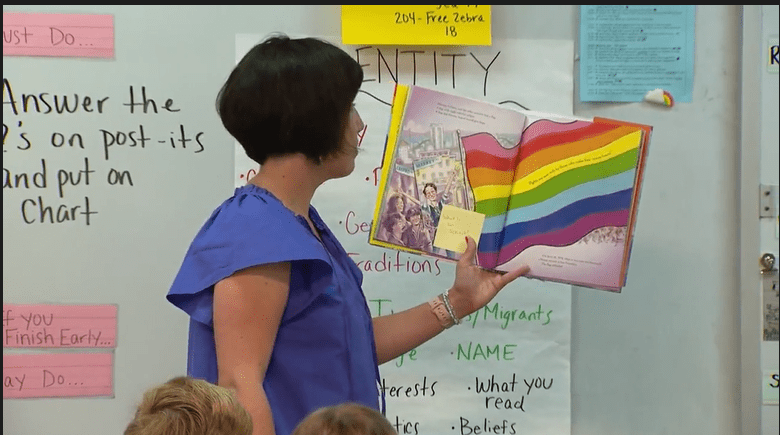As other states pass ‘Don’t Say Gay’ measures, Illinois is 1 of 5 states to mandate ‘inclusive learning’
Across the county teachers, students, parents, and politicians are wrestling with questions over the curricula: Does a teacher mentioning a person’s sexual orientation or gender identity somehow harm students, or does it provide an inclusive and well-rounded education?
This year, more than 300 bills classified as anti-LGBTQ by the American Civil Liberties Union have been proposed in state legislatures. Those measures have sought to ban books, transgender athletes, and certain discussion topics in classrooms. The most publicized example was Gov. Ron Desantis, R-Florida signing the so-called ‘Don’t Day Gay’ law, which prohibits teachers from mentioning sexuality and gender from kindergarten through third grade.
The Alliance Defending Freedom, the group pushing many of the state house bills, declined to comment.
This week, President Joe Biden signed an executive order to address the anti-LGBTQ bills by mandating federal health agencies to expand access to gender-affirming care and federal education agencies to promote LGBTQ-inclusive learning at public schools.
ADVERTISING
“My message to all the young people: Just be you,” Biden said. “You are loved. You are understood. You do belong,” Biden added. “I want you to know that as your president, all of us on this stage, have your back.”
There are only five states that mandate inclusive learning in public schools: California, New Jersey, Colorado, Oregon, and Illinois.
“Maybe in Florida, they don’t say ‘gay,’ but here in Illinois, we say ‘gay,’” said Gov. J.B. Pritzker this month.
Pritzker signed the Illinois ‘inclusive curriculum act’ It was gives wide latitude to local school boards to determine just how the law should be implemented, saying only that history classes “shall include a study of the roles and contributions of lesbian, gay, bisexual, and transgender people” by the time students finish eighth grade.
The law came under criticism from Republican candidates for Illinois governor at a recent WGN-TV debate.
That was on display at Edison Park Elementary, a Chicago Public Schools K-8 school on Chicago’s Northwest Side, where fifth-grade students in Mrs. Carrie Stern’s class were learning about the Pride Flag and about Harvey Milk, the gay rights activist and San Francisco city supervisor who was assassinated in 1978.
Stern says critics of inclusive education have mischaracterized it. She said she views incorporating themes and stories of LGBTQ-plus people as vital in an education that seeks to tell an accurate and comprehensive accounting of history, rather than one that censors reality.
“When the whole story isn’t being told, students aren’t being informed about amazing people who have made contributions to our society,” Stern said. “Members of the LGBTQ-plus community are our friends, our neighbors, our peers, our family members, and when we aren’t sharing the stories of those people, we’re doing a great disservice to children.”
But the conservative advocacy group known as Parent’s Rights in Education of Illinois, which opposes inclusive education’ laws has described the Illinois law as politicians “usurping parental authority and religious liberty.”
Chuck Gallagher, a fifth-grader at Edison Park Elementary said the inclusive education is valuable.
“I know everybody has some differences,” he said. “But everybody should be treated equally, everybody should be treated the exact same. Just like the golden rule – treat people how you want to be treated.”

